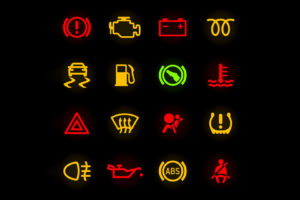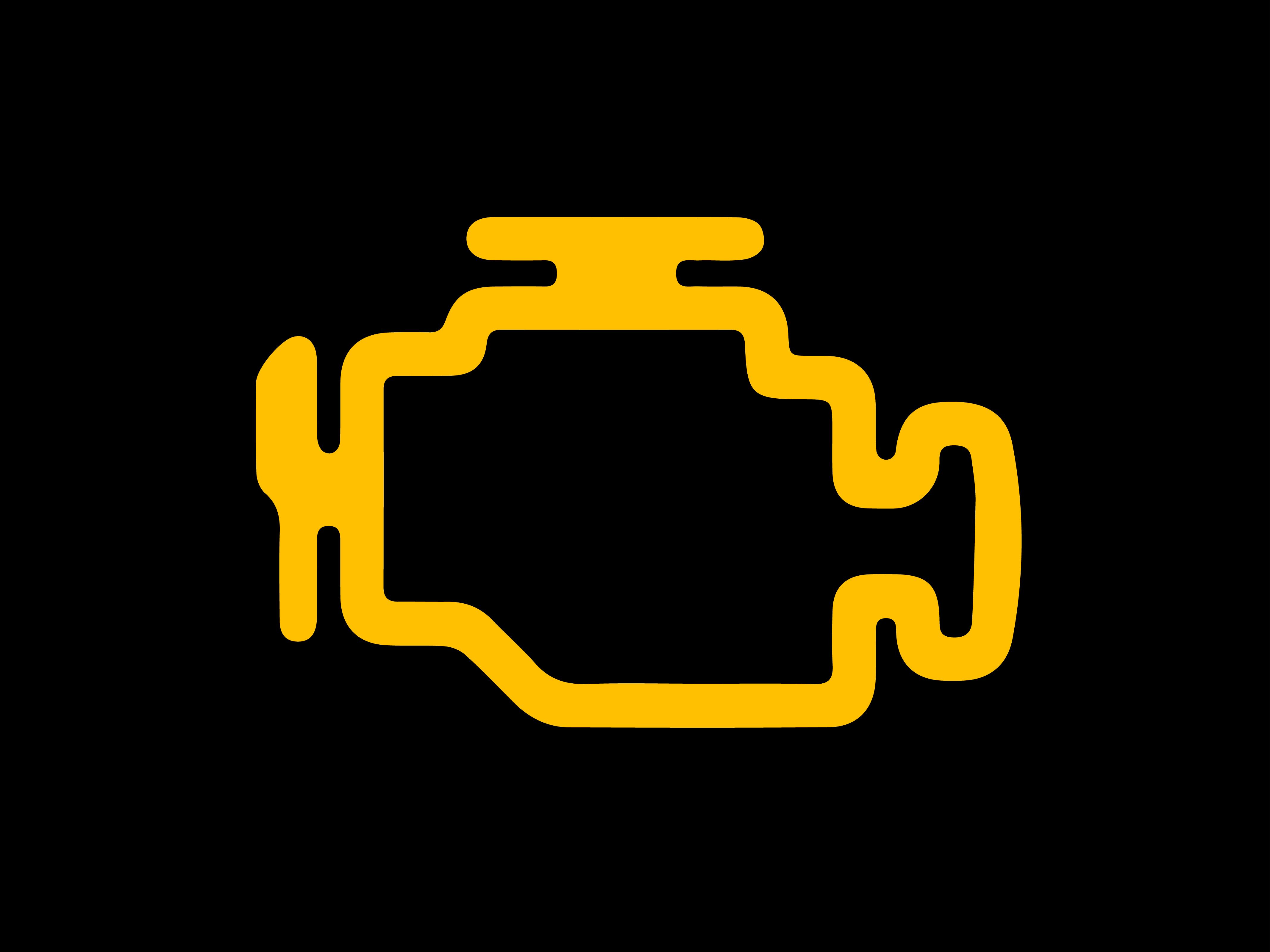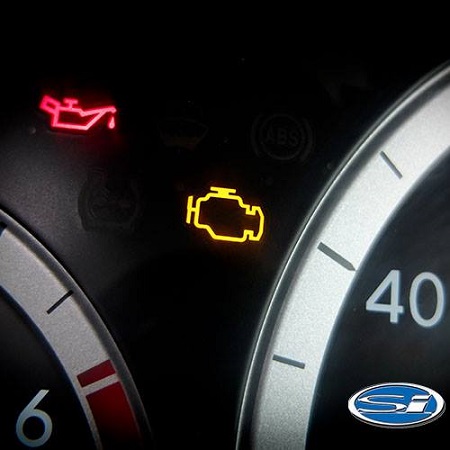What Does Check Engine Light Mean. The Check Engine Light indicates a potential problem with your vehicle’s engine or emissions system. It’s a warning that requires attention to prevent further damage.
Your car’s dashboard is designed to alert you when something goes awry, and the Check Engine Light is a critical indicator. This light, often shaped like an engine, can signify various issues ranging from a loose gas cap to more severe engine problems.
Understanding this alert’s importance is essential for maintaining your car’s health and performance. Ignoring this warning could lead to costly repairs and decreased vehicle safety. Therefore, it’s advisable to have your car diagnosed by a professional as soon as possible to determine the exact cause and address any issues promptly.

Credit: www.avidrisk.com
Introduction To The Check Engine Light
The Check Engine Light is a signal from your car. It tells you something needs attention. This light can mean many things. It can be simple or serious. Knowing about it helps keep your car safe and running well.
The Role Of The Check Engine Light In Vehicle Diagnostics
The Check Engine Light plays a big part in car care. It connects to your car’s computer. This computer checks many parts of your car. When it finds a problem, the light turns on. It means you should check your car soon.
- Helps find car problems early.
- Keeps the car running smoothly.
- Saves money on big repairs later.
Common Misconceptions About The Check Engine Light
Some people misunderstand the Check Engine Light. They think it’s always a big problem. Or they ignore it. Both are wrong.
| Misconception | Truth |
|---|---|
| It means stop driving now. | Not always. Some issues are small. |
| It’s always expensive to fix. | Some fixes are simple and cheap. |
| It can wait. | It’s best to check it soon. |
Understanding the Check Engine Light helps you take good care of your car.

Credit: www.caranddriver.com
Potential Triggers For The Check Engine Light
Seeing the check engine light can worry any car owner. This light tells us something needs a check under the hood. Several reasons can make this light turn on. Let’s explore some common triggers for the check engine light.
Loose Gas Cap Causing Warnings
A simple reason for the check engine light is a loose gas cap. The gas cap seals the fuel system and keeps the pressure right. If it’s loose, fuel vapor leaks out. This makes the car less efficient and turns on the light. Tighten the cap to fix this issue.
Malfunctioning Oxygen Sensor Impact
The oxygen sensor measures how much oxygen burns during combustion. A faulty sensor can send wrong data to the car’s computer. This affects the car’s mileage and increases emissions. Replacing a bad oxygen sensor helps fix the problem.
Catalytic Converter Failure Signals
The catalytic converter turns harmful gases into less harmful emissions. If it fails, the car won’t run correctly, and fuel efficiency drops. Signs of failure include a decrease in performance and an increase in emissions. Replacing the converter is necessary to solve this.
Other common triggers include:
- Faulty mass airflow sensor
- Worn spark plugs
- Failing ignition coils
Sensor And System Errors
When the Check Engine Light turns on, it can mean many things. One common reason is sensor and system errors. These issues can stop your car from working right. Let’s talk about some of these problems.
Faulty Mass Airflow Sensor Effects
A mass airflow sensor measures the air coming into the engine. When it’s not working, your car might:
- Use more gas than usual.
- Have trouble starting.
- Stall while driving.
Fixing it early can save you money and keep your car running smoothly.
Issues With The Emission Control System
Your car’s emission system keeps the air cleaner. Problems here can cause:
- Bad smells from the exhaust.
- A decrease in gas mileage.
- The Check Engine Light to turn on.
Regular checks can prevent these issues from getting worse.
Engine Misfires And Their Indicators
Engine misfires make your car run poorly. You might notice:
- Your car shaking when it starts.
- A lack of power when driving.
- Strange noises from the engine.
Getting this fixed quickly can avoid more damage to your car.
Diagnosing The Check Engine Light
Seeing the check engine light can be scary. You may wonder, “What’s wrong?” Let’s talk about how we find out. This part is about finding the problem when the check engine light comes on.
Using Onboard Diagnostic (obd) Tools
We use special tools to talk to the car’s computer. These tools are called OBD tools. They help us understand the car’s problems.
- First, we plug the OBD tool into the car.
- Next, the tool reads messages from the car’s computer.
- Then, it shows us codes. These codes tell us the issue.
Interpreting Trouble Codes
The codes might look strange at first. Each code has a meaning. We use a book or the internet to find out what they mean.
| Code | Meaning |
|---|---|
| P0300 | Engine Misfire |
| P0171 | Too Lean |
Professional Vs. Diy Diagnosis
Some people try to find the problem themselves. Others go to a professional. Let’s see the difference.
- DIY Diagnosis: You use your own OBD tool. It’s cheaper but can be hard.
- Professional Diagnosis: A mechanic uses their tools. They know a lot, so it’s often better.
Immediate Actions To Take When The Light Comes On
The Check Engine Light is a critical signal from your car’s computer. It indicates a problem with the vehicle’s emissions, ignition, fuel, or exhaust systems. When this light illuminates, prompt action is essential to prevent potential damage. Understanding the necessary steps can save time and ensure safety.
Safety Precautions And Checks
Begin with basic safety checks. Confirm that the car’s vital functions are working. Check the dashboard for other warning lights. Assess the car’s performance for any unusual behavior. This includes strange noises, smells, or handling issues.
When To Pull Over Immediately
If the Check Engine Light flashes, pull over. A flashing light means a severe issue that needs immediate attention. It could indicate a misfire, causing damage to the catalytic converter. Turn off the engine to prevent further damage.
How To Monitor Vehicle Performance
Keep an eye on vehicle performance after the light comes on. Note any changes in acceleration, idle, or fuel efficiency. These observations can help a mechanic diagnose the problem. Use your vehicle’s onboard diagnostics if available.
- Check gauges for overheating or low oil pressure.
- Listen for unusual engine or exhaust sounds.
- Monitor for reduced power or stalling.
Long-term Consequences Of Ignoring The Light
The Check Engine Light is a critical warning signal. Ignoring it could lead to serious issues. These may affect your car’s performance and value. They could also have legal and environmental effects.
Risks Of Driving With A Lit Check Engine Light
- Engine Damage: The light might indicate a minor issue. It can turn into a major one if ignored. This could ruin the engine.
- Decreased Performance: A car with engine problems won’t run smoothly. This could reduce speed and increase fuel use.
- Safety Hazards: Engine issues can cause breakdowns. These can happen at any time, putting you at risk.
Potential Impact On Vehicle Resale Value
| Check Engine Light Status | Impact on Resale Value |
|---|---|
| Off | Higher value, easier to sell |
| On | Lower value, buyers hesitate |
Legal And Environmental Ramifications
Driving with the check engine light on can have legal and environmental consequences. These include:
- Fines: Some regions require cars to pass emissions tests. A lit check engine light often means a fail. This could lead to fines.
- Pollution: Engine problems can increase emissions. This harms the environment more than a healthy engine.
Preventive Measures And Maintenance Tips
The Check Engine Light signals issues with your car. Understanding preventive measures helps avoid costly repairs. Regular maintenance is key. Simple tips can keep the engine light off. Monitoring your vehicle health ensures a longer life for your car.
Regular Vehicle Maintenance Schedules
Sticking to a maintenance schedule is vital for your car’s health. It includes oil changes, filter replacements, and tire rotations. A well-maintained car is less likely to have engine light troubles.
- Check your owner’s manual for the right schedule.
- Visit a trusted mechanic regularly.
- Keep a record of all maintenance work.
Tips For Keeping The Engine Light Off
Prevent the engine light from coming on with these tips:
- Use the right type of fuel.
- Replace spark plugs as suggested.
- Listen for unusual noises.
- Check the gas cap is tight.
Staying Ahead With Vehicle Health Monitoring
Modern tools help you stay updated on car health. They detect problems early. This keeps the engine light off.
- Use a diagnostic tool for regular checks.
- Look out for warning signs.
- Read trouble codes with an OBD-II scanner.

Credit: www.facebook.com
Frequently Asked Questions
What Could Cause The Check Engine Light To Come On?
A check engine light can be triggered by a malfunctioning oxygen sensor, a loose gas cap, faulty spark plugs, a bad catalytic converter, or an engine misfire.
Is It Okay To Drive With The Check Engine Light On?
Driving with the check engine light on is not advisable. It signals potential issues needing immediate attention. Prolonged driving may cause further damage to your vehicle. Always consult a mechanic promptly.
What Is The First Thing To Check When The Check Engine Light Comes On?
Check your dashboard for any obvious alerts and then inspect the gas cap, ensuring it’s tight and secure.
What Does Solid Check Engine Light Mean?
A solid check engine light indicates a detected vehicle malfunction that requires attention but is not an emergency. It’s advisable to schedule a service soon to diagnose the issue.
Conclusion
Understanding your vehicle’s check engine light is crucial for maintaining optimal performance. Prompt attention to this alert can prevent minor issues from escalating. Remember, proper diagnosis and timely repairs not only ensure safety but also contribute to your car’s longevity.
Drive smart and keep that engine light in check!
